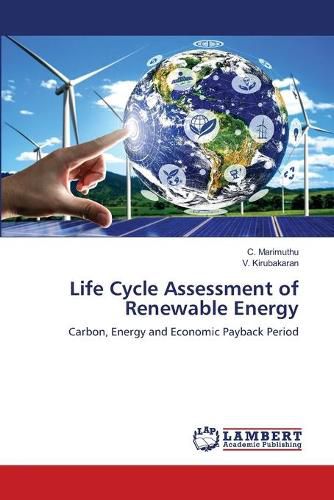Readings Newsletter
Become a Readings Member to make your shopping experience even easier.
Sign in or sign up for free!
You’re not far away from qualifying for FREE standard shipping within Australia
You’ve qualified for FREE standard shipping within Australia
The cart is loading…






This title is printed to order. This book may have been self-published. If so, we cannot guarantee the quality of the content. In the main most books will have gone through the editing process however some may not. We therefore suggest that you be aware of this before ordering this book. If in doubt check either the author or publisher’s details as we are unable to accept any returns unless they are faulty. Please contact us if you have any questions.
In the present scenario, renewable energy sources contribute to global climate change. The main reason for this can be that all the countries start manufacturing power using renewable sources which is almost free from CO2 emission. But some amount of carbon is emitting in the manufacturing, construction, maintenance, and decommissioning stages. Life Cycle Assessment (LCA) is a tool used to quantify the environmental impact of a particular system or product throughout its entire life span, usually from raw material extraction to final disposal. Life cycle assessment has been done for some renewable energy projects in India. For this project’s carbon intensity, Energy intensity has been calculated and compared with the conventional method. Wind and Solar PV power plants are compared with the coal-based conventional power production system, solar street light is compared with a conventional streetlight, and the solar water heater is compared with the electric water heater. Based on that, the Carbon Pay Back Period (CPBP) and Energy Pay Back Period (EPBP) have been calculated.
$9.00 standard shipping within Australia
FREE standard shipping within Australia for orders over $100.00
Express & International shipping calculated at checkout
This title is printed to order. This book may have been self-published. If so, we cannot guarantee the quality of the content. In the main most books will have gone through the editing process however some may not. We therefore suggest that you be aware of this before ordering this book. If in doubt check either the author or publisher’s details as we are unable to accept any returns unless they are faulty. Please contact us if you have any questions.
In the present scenario, renewable energy sources contribute to global climate change. The main reason for this can be that all the countries start manufacturing power using renewable sources which is almost free from CO2 emission. But some amount of carbon is emitting in the manufacturing, construction, maintenance, and decommissioning stages. Life Cycle Assessment (LCA) is a tool used to quantify the environmental impact of a particular system or product throughout its entire life span, usually from raw material extraction to final disposal. Life cycle assessment has been done for some renewable energy projects in India. For this project’s carbon intensity, Energy intensity has been calculated and compared with the conventional method. Wind and Solar PV power plants are compared with the coal-based conventional power production system, solar street light is compared with a conventional streetlight, and the solar water heater is compared with the electric water heater. Based on that, the Carbon Pay Back Period (CPBP) and Energy Pay Back Period (EPBP) have been calculated.